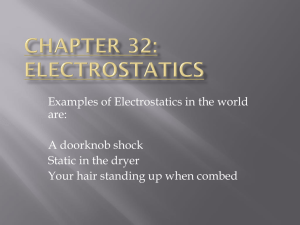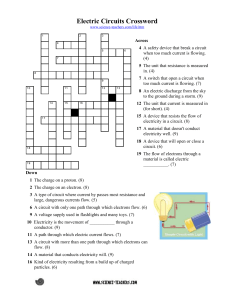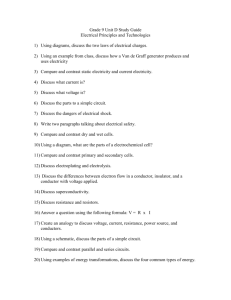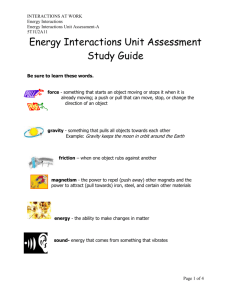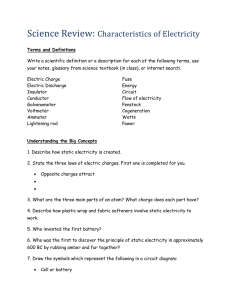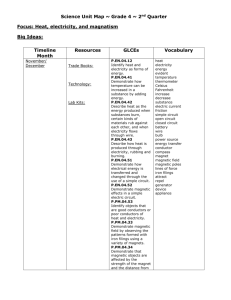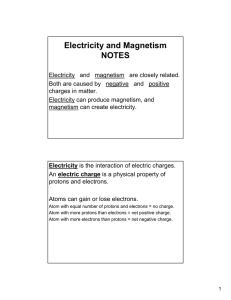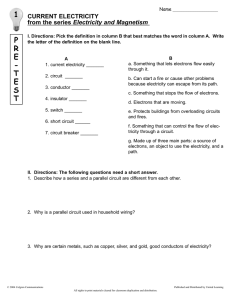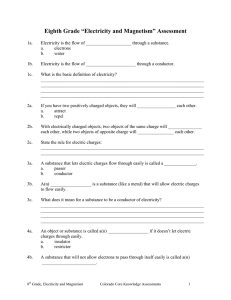Physical Science Study Guide: Electricity & Magnetism
advertisement
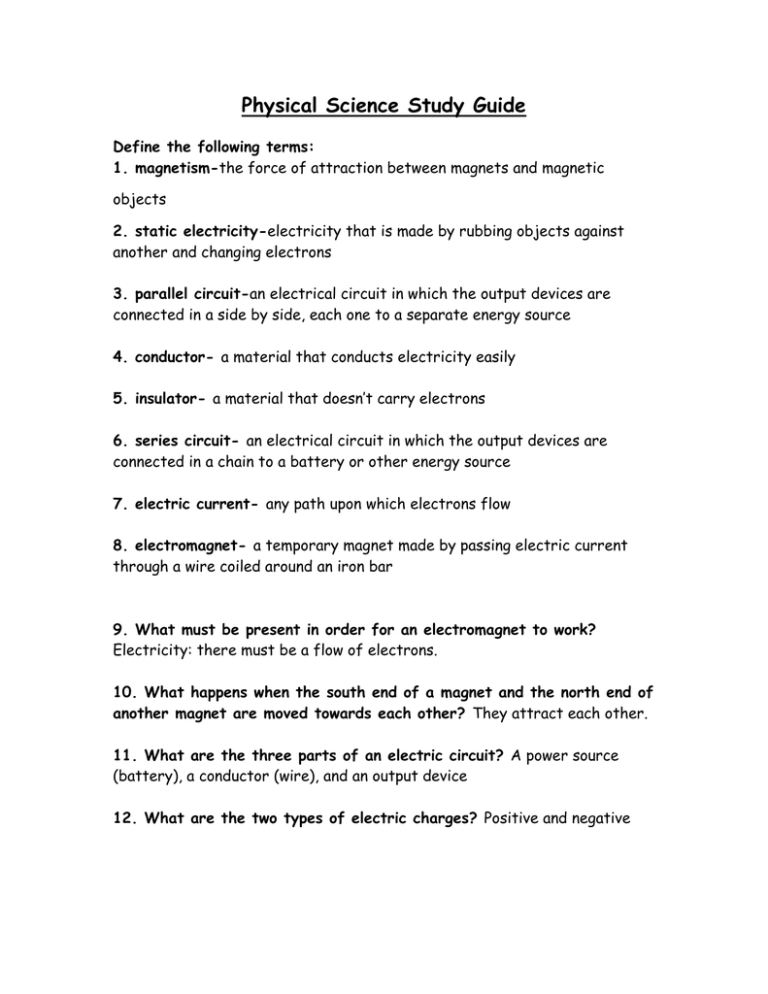
Physical Science Study Guide Define the following terms: 1. magnetism-the force of attraction between magnets and magnetic objects 2. static electricity-electricity that is made by rubbing objects against another and changing electrons 3. parallel circuit-an electrical circuit in which the output devices are connected in a side by side, each one to a separate energy source 4. conductor- a material that conducts electricity easily 5. insulator- a material that doesn’t carry electrons 6. series circuit- an electrical circuit in which the output devices are connected in a chain to a battery or other energy source 7. electric current- any path upon which electrons flow 8. electromagnet- a temporary magnet made by passing electric current through a wire coiled around an iron bar 9. What must be present in order for an electromagnet to work? Electricity: there must be a flow of electrons. 10. What happens when the south end of a magnet and the north end of another magnet are moved towards each other? They attract each other. 11. What are the three parts of an electric circuit? A power source (battery), a conductor (wire), and an output device 12. What are the two types of electric charges? Positive and negative 13. If matter has a balance of both positive and negative charges, what is it called? Neutral, it has an equal number of positive and negative charges. 14. What type of electricity has electrons constantly moving in one direction? Current electricity 15. What items are good insulators? Plastic, wood, rubber, glass 16. What items are good conductors? Metal, water 17. What do items with the same charge do when they are placed near each other? They repel each other. 18. What do items with unlike charges do when placed near each other? They attract each other. 19. What type of electricity is lightning an example of? Static electricity 20. Does a circuit have to be complete to work? Yes 21. How can electricity in a circuit easily be turned on or off? With a switch 22. Explain how you would test an item to see if it is a conductor or an insulator? Place the material between the conductor and the output device and see if the electricity still travels to the output device. 23. How could you make static electricity? By rubbing a balloon on your head or walking across a carpet
